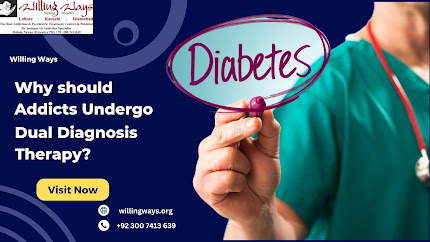Breaking Down the Definition of Alcoholism
Jessi, (not his real name) walked in the door at the best addiction treatment center in the Lahore neighborhood bar and asked for a draft beer. While sitting there, tending to his drink, an older gentleman arrived. People with addiction problems must read the article "The Dangers of Ecstasy Addiction" for the betterment of their life and sit next to him. "Draft beer, please," the older man said. Thirty minutes later, the older gentleman left. Jessi noticed the glass left was ¾ full. Stealthily, Jessi inched his way to the vacant seat and, in a very natural manner, slid the beer from the vacated spot to his spot. Alcoholism should be treated. Patients of alcohol addicts don't know what alcohol addiction is and its treatments. That's why they early don't get rid of this habit because of illiteracy. This went on for the rest of the evening with several patrons. Eventually, Jessi stumbled out the door and left. This situation brings up the topic of Alcoholism and its definition.
Alcoholism: Some people have it, and some people don't. Which leads us to ask, what does Alcoholism mean anyway?
Simply put, Alcoholism means to have an
addiction to the consumption of alcoholic beverages. Then we have to ask, what
causes alcoholism or alcohol dependence?
Alcoholism Addiction Help
technology and study of the brain, research has
found that Alcoholism also termed alcohol dependence, is a gradual physical
process that may take from a few years to several decades to develop into a
problem; interestingly also enough depends on a person's age. Recent research
has found that Alcohol dependence can become an addiction in a matter of
months, which may be surprising to some.
Eventually, over time and with regular alcohol
consumption, this chemical intake has the potential to disrupt the balance of
the brain's chemical gamma-aminobutyric acid (GABA), which controls
impulsiveness, as well as glutamate, which stimulates the nervous system and
may lead to a disorder in the brain's anatomy.
Did you know that dopamine levels in the brain
are raised when a person consumes alcohol? Dopamine levels may enhance the
drinking experience and make it more gratifying, therefore, the desire to
repeat the process.
Suppose occasional drinking becomes excessive
drinking over time. In that case, this action can significantly alter
gamma-aminobutyric acid (GABA) levels. It may cause physical cravings for more
alcohol to enhance good feelings or to avoid feeling depressed.
Is Jessi an alcoholic? Maybe he is, or perhaps
he's not. Until there's a need for him to know, we won't know either because,
in this article, we've outlined one definition of Alcoholism to think about.
We are here for you right now so, please contact us at
Lahore: Mr.
Mohsin Nawaz 03007413639
Karachi: Mr.
Wakeel Murad 03002155956
Islamabad: Mr. Talal Zubair 03345145145
Vist our
website:
www.willingways.org




Comments
Post a Comment